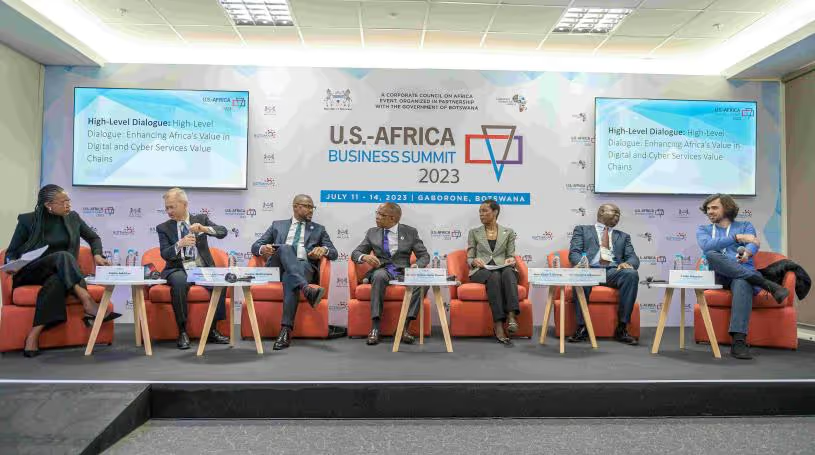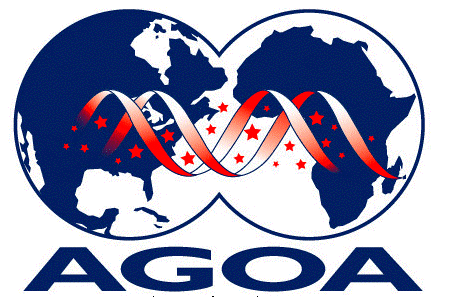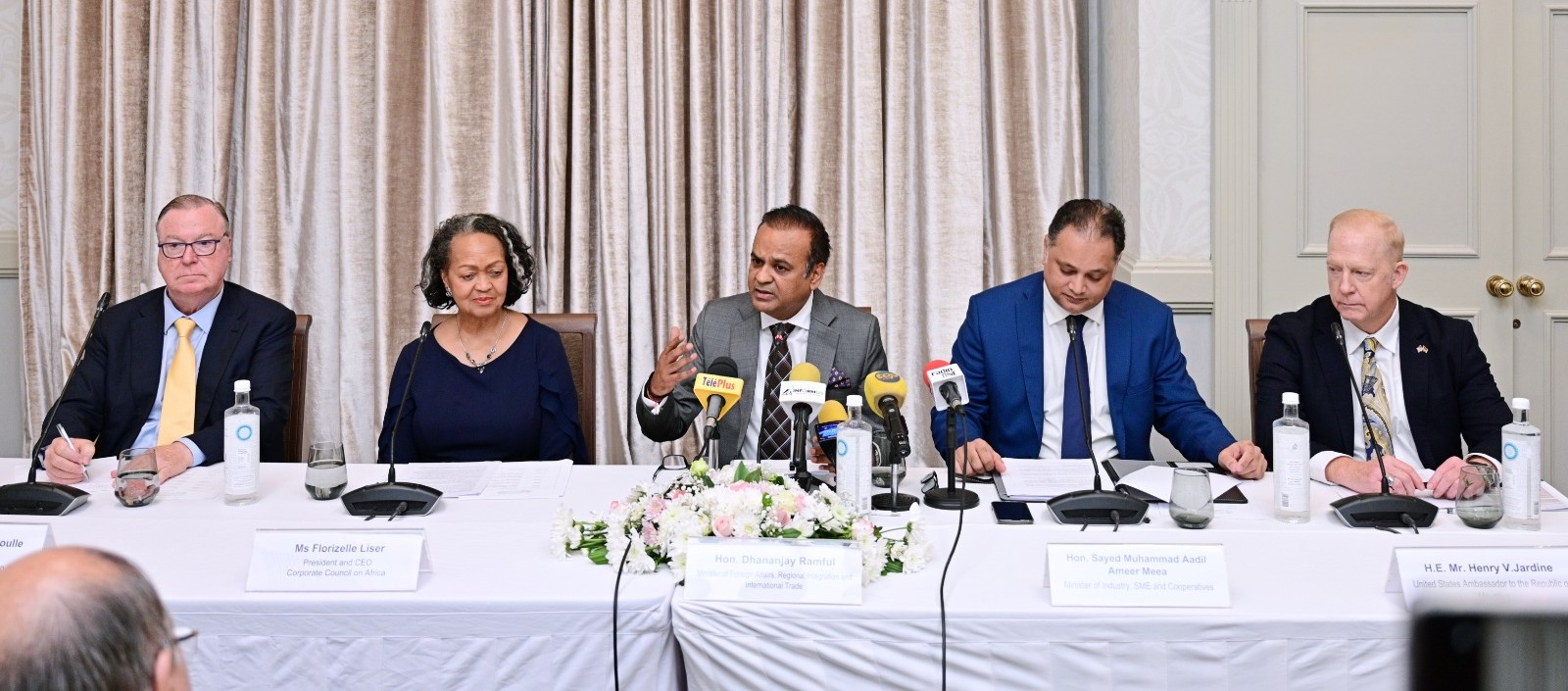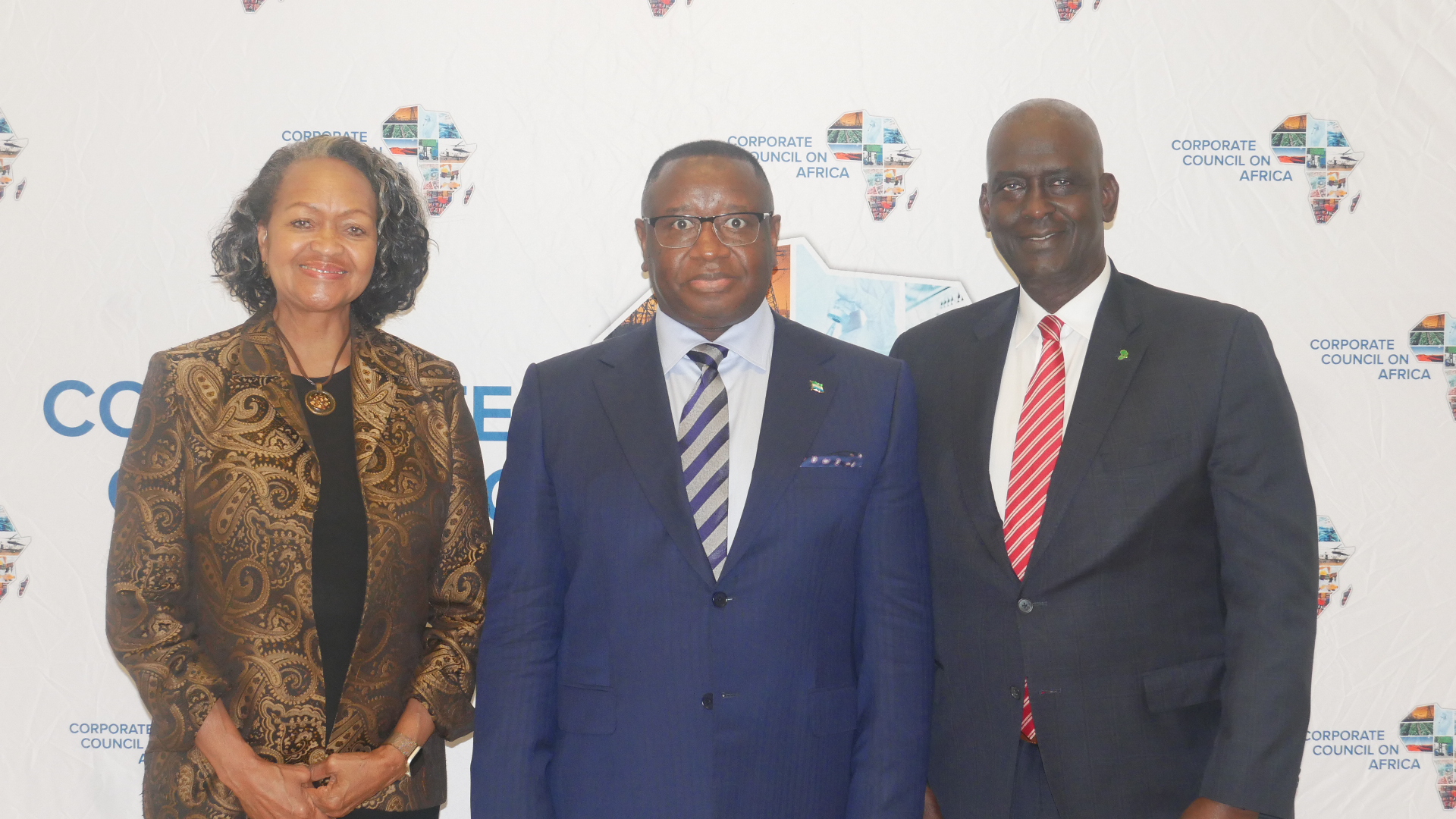Enhancing Africa’s Value in ICT & Digital Services Value Chains - 2023 U.S.-Africa Business Summit

On Wednesday, July 12, 2023, the Corporate Council on Africa (CCA) hosted a thought-provoking high-level dialogue entitled “Enhancing Africa’s Value in ICT & Digital Services Value Chains” during its prestigious U.S.-Africa Business Summit in Gaborone, Botswana. The discussion, skillfully moderated by Mosa Mkhize, Policy Advisor and Vice Chair (Africa), Covington & Burling LLP, was centered around the importance of accelerating U.S.-Africa trade and investment relations in terms of digitization and strengthening public - private partnerships to further digital economies. Mkhize set the scene by outlining that this high-level dialogue is important in the context of the opportunities presented by the digital economy, particularly given that that the sector is expected to grow into a $180 billion industry by 2025, accounting for 5.2% of the continent’s gross domestic product. This is expected to reach $712 billion, or 8.2% of African’s GDP by 2050.Rt. Hon. Cleopas Sipho Dlamini, Prime Minister of the Kingdom of Eswatini initiated the discussion by sharing the country’s primary pillars to create an enabling environment for a digitally driven economy encompassing relevant policy legislation, a regulatory framework, essential infrastructure namely skill training and access to services. Echoing Prime Minister Dlamini’s views on infrastructure, Hon. Enoh Ebong, Director of the U.S. Trade and Development Agency (USTDA) touched upon connectivity and inclusivity to support entrepreneurs and pooling resources between the public and private sector to forge partnerships to accelerate the digitalization initiative to advance shared prosperity – a “foundational” objective of the U.S. government under the “Digital Transformation with Africa” initiative, launched by President Biden at the December 2022 U.S. Africa Leaders Summit and Business Forum. Director Ebong stressed the Prime Minister’s point on the importance of governments creating an enabling and inclusive environment to attain ambitious digital connectivity goals and highlighted the resources and initiatives available to African governments and private sector.Dr. Douglas Mboweni, Group CEO of Econet Wireless Zimbabwe unpacked the five key elements needed to promote development: solid physical infrastructure; build data relevant to the sectors being pursued; intelligent mining of data from a human intelligence and information systems point of view; sound, consistent, and deliberate government policy; and education of the workforce and customer base. “All of these five elements are underpinned by integrity and the funding – but the most major issue in Africa is integrity…if we sort that out, it will open a huge flow of funding,” observed Mboweni to applause from the audience. Chris Maurice, CEO of Yellow Card – the largest pan-African cryptocurrency platform – agreed with Mboweni that integrity is important, and offered that also important is the ability for investors to move funds around freely and not have their funds “trapped.” However, observed Maurice, most important to attract investment is a “financial system that works.” Maurice spoke to broader macroeconomic factors hindering both intra-African trade as well as foreign investment due to shortcomings in the African fiat currency regimes, noting that while the vision of the African Free Trade Agreement (AfCFTA) is inspiring, it won’t work without a sound fiscal payments system. Acknowledging that he is biased, he suggested that cryptocurrency and stable coins are the most viable mechanism to facilitate the completion of international payment transactions on the continent and abroad.Christopher LeGrand, CEO at BroadReach Group which leverages technology for healthcare services delivery, shared his insights on harnessing technology particularly to enhance healthcare accessibility to rural areas across Africa. LeGrand accentuated on the importance for the public sector not to try to do it themselves, but to collaborate with the disjointed and fragmented private sector healthcare sector that exists across the continent to create a more efficient ecosystem and create a framework to deliver better healthcare outcomes. “Put the framework in place, the rules in place, and find ways to finance that using both public and private sector finance – that’s the way to deliver better health outcomes and better returns for the social enterprise,” stated LeGrand. Underscoring the importance of embracing digital payments to solve the payments issue raised earlier, Ogone Mothooagae, Founder and CEO at Stencil Technologies (Botswana) emphasized that Africa is the fastest growing region for adoption of fintech and digital payments and called for a very intentional effort to advance this area of growth. Mothooagae also underscored the critical importance of internet connectivity within Africa and to the rest of the world, as well as changing educational curriculum to advance digital literacy, to ensure that digital innovation and entrepreneurship in Africa is encouraged and not hindered. “Policy that is enabling, that strikes the right balance between enabling technology and protecting the rights of the citizens is vital,” Mothooagae concluded.The panelists concluded the discussion by answering questions surrounding initiatives towards investments and government regulations. The first question by a Ghana-based entrepreneur observed that 75% of all venture capital investment in Africa went to four countries – asking how to seek more equitable distribution to other countries. Chris Maurice offered that one of the key ways to better ensure that venture capital moves to other markets is to ensure investors get to know the viability of the investment environment outside of Nigeria, South Africa, Kenya and Egypt. “You do things like this Summit in other countries that open them up to venture capital…investors invest in people they get to know and trust and have confidence in as much as their business ideas,” said Maurice. Chris LeGrand likewise observed that the Summit is one important way for American investors to get to know Africa, “Which is why I really love being a part of CCA.” USTDA Director Ebong underscored the U.S. government’s Digital Transformation Agenda as seeking to address gender disparity in the ICT space, noting that her entire USTDA delegation to the Summit is comprised of women. Notably, American public sector is actively endorsing these advancements through initiatives and its support for representation in trade and investment. On the topic of regulations, Botswana has demonstrated its keen interest in regulating technologies while stimulating innovation, including cryptocurrency licensing, to foster financial solutions.Click hereto watch the recorded session.



